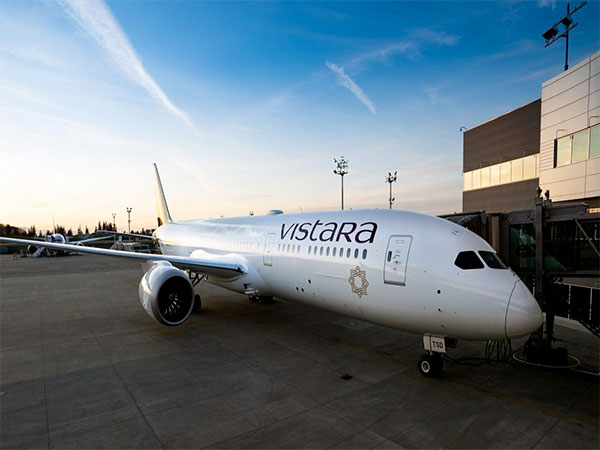
Gurugram: Full-service carrier Vistara on Thursday became the first Indian airline to operate a commercial domestic flight on a wide-body aircraft using sustainable aviation fuel (SAF).
According to the airline, this historic feat was achieved on Vistara's brand new Boeing 787-9 Dreamliner, flying from Indira Gandhi International Airport (IGIA), Delhi, to Chhatrapati Shivaji Maharaj International Airport, Mumbai, using a blend of 17 per cent SAF with 83 per cent conventional jet fuel. On this flight, Vistara was able to reduce approximately 10,000 pounds of CO2 emissions. This pioneering initiative is part of Vistara's ongoing efforts to minimise carbon footprint and support a sustainable future for the aviation industry, according to the airline.
Last month, Vistara operated a wide-body aircraft on a long-haul international route using sustainable aviation fuel, first time for an Indian airline, according to the airline.
A blend of 30 per cent SAF and 70 per cent conventional jet fuel was used on a ferry flight between Charleston International Airport, South Carolina to Indira Gandhi International Airport, Delhi, which resulted in the reduction of approximately 150,000 pounds of CO2 emissions over the fuel's life cycle.
Vinod Kannan, Chief Executive Officer, Vistara, said, "We have always been committed to driving sustainability and innovation in aviation, and are delighted to carry out yet another industry-first initiative of operating a commercial flight on a wide-body using SAF. We are thankful to our partners and the relevant authorities for their support."
Vistara, along with other airline companies of the TATA group, has been working extensively towards the reduction of carbon emissions through use of sustainable technologies. Last year, they signed an MoU with the Council of Scientific and Industrial Research - Indian Institute of Petroleum to collaborate on the research, development and deployment of sustainable aviation fuels (SAFs).
According to the airline, it is also working through the Carbon Offsetting and Reduction Scheme for International Aviation (CORSIA), to lower CO2 emissions for international flights and to curb the industry's impact on climate change.